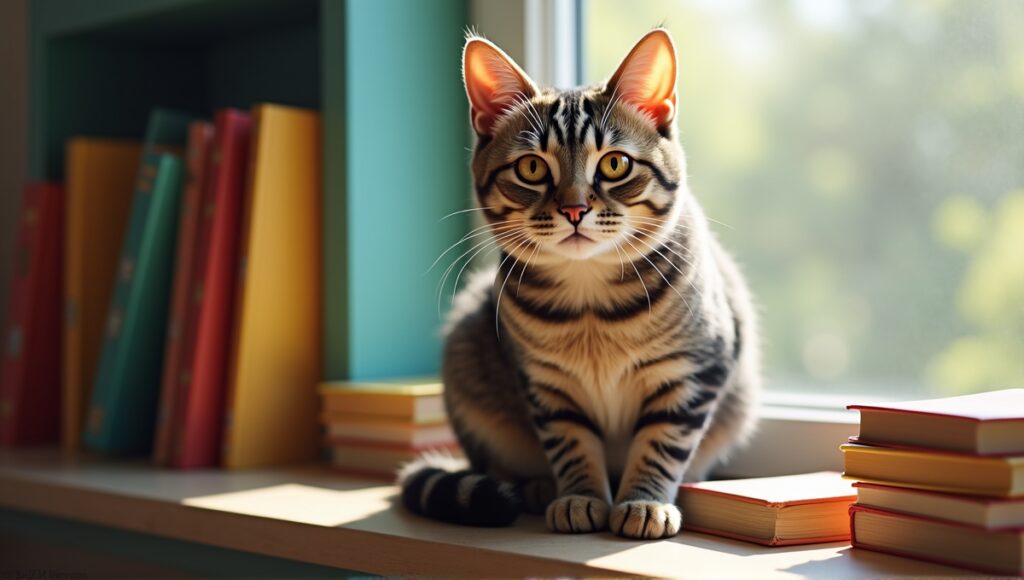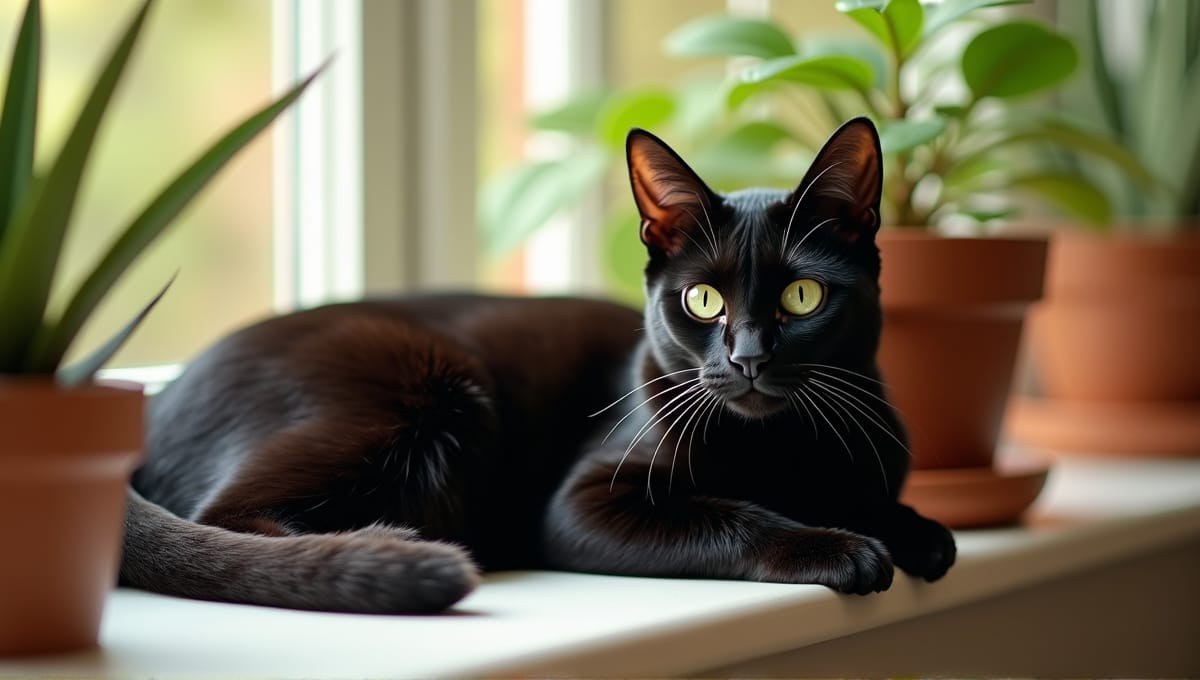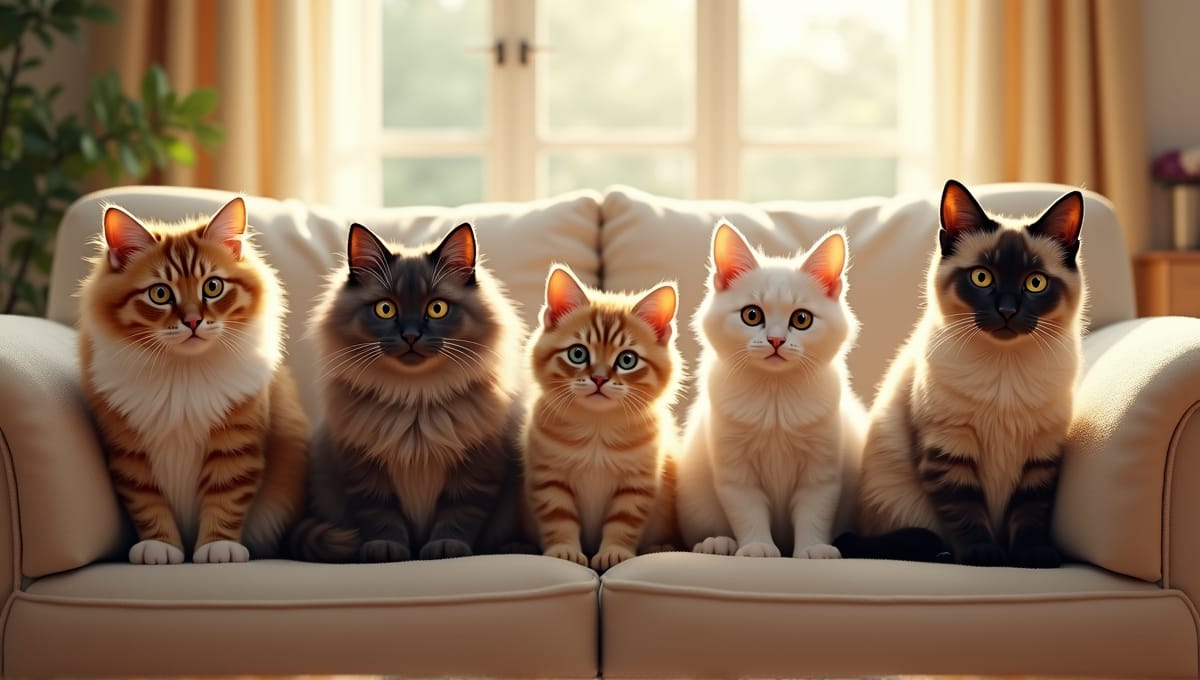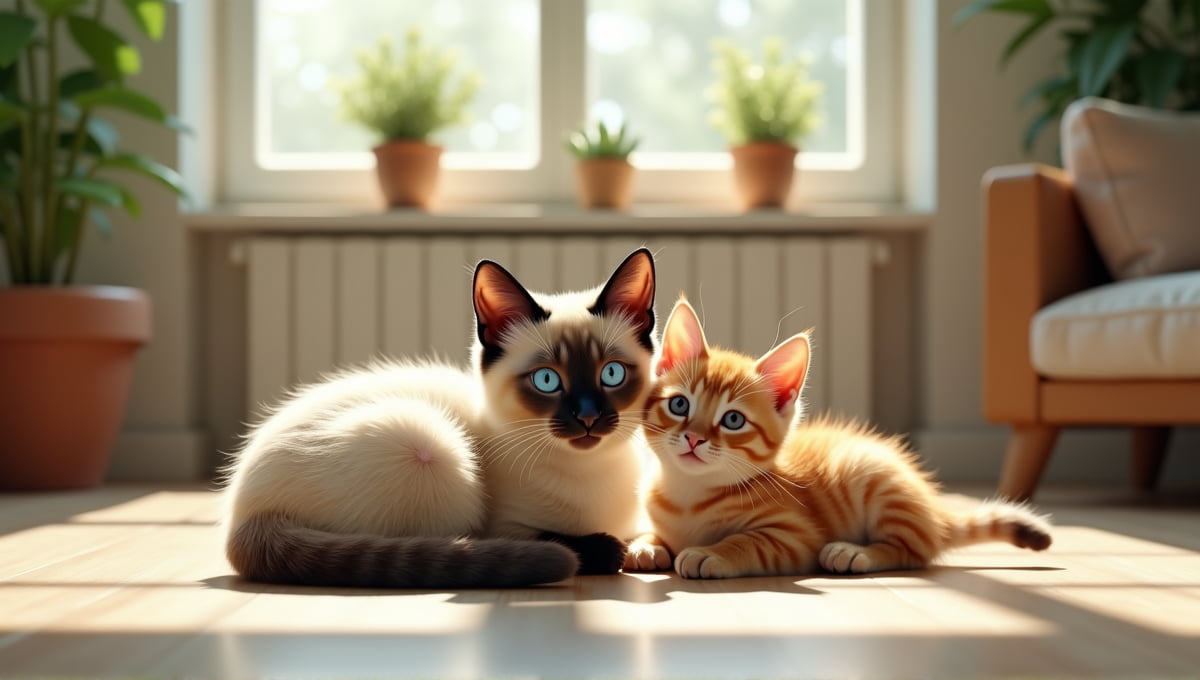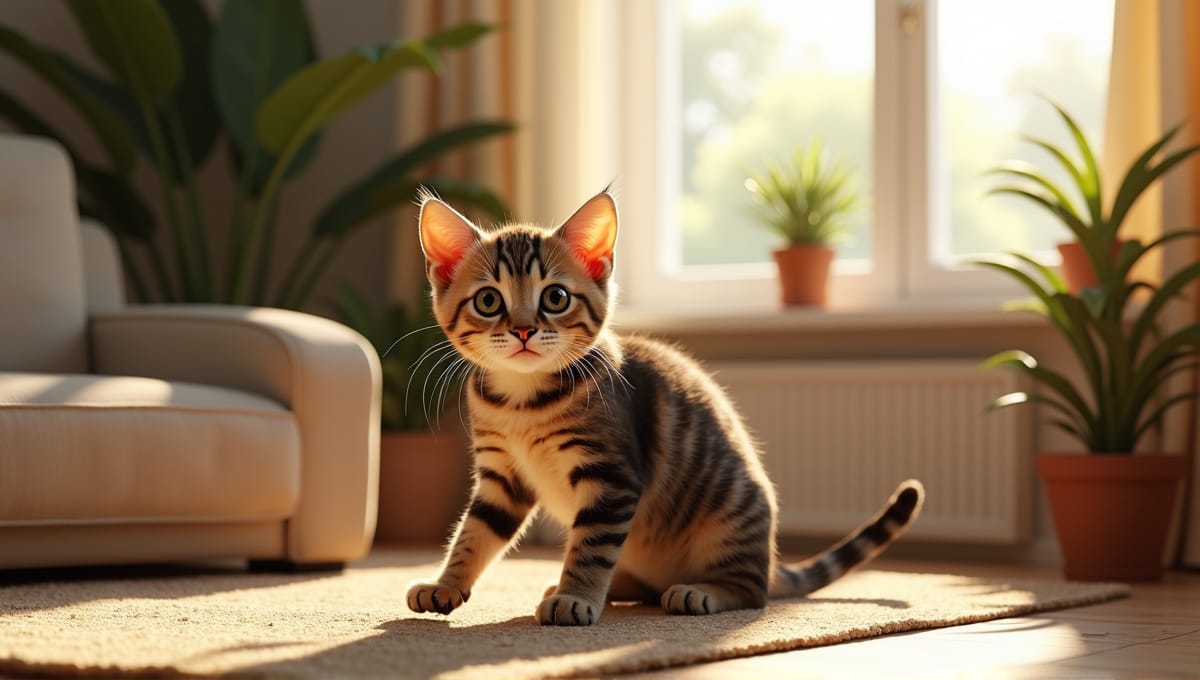As a cat expert who has devoted countless hours to studying cat behavior, cat intelligence is one of the most interesting and complicated things to analyze. You’ve probably asked yourself at one point or another, “How intelligent is my cat really?” It’s not as straightforward as you might think, though. Cat breed intelligence is a complex topic and cat intelligence depends on more than just genetics.
I’ll explain why some cat breeds are known for their intelligence, the different factors that contribute to intelligence in cats, and how to evaluate your cat’s intelligence. So without further ado, let’s explore the world of the feline brain and uncover the secrets to just how smart your cat really is.
Understanding Cat Breed Intelligence
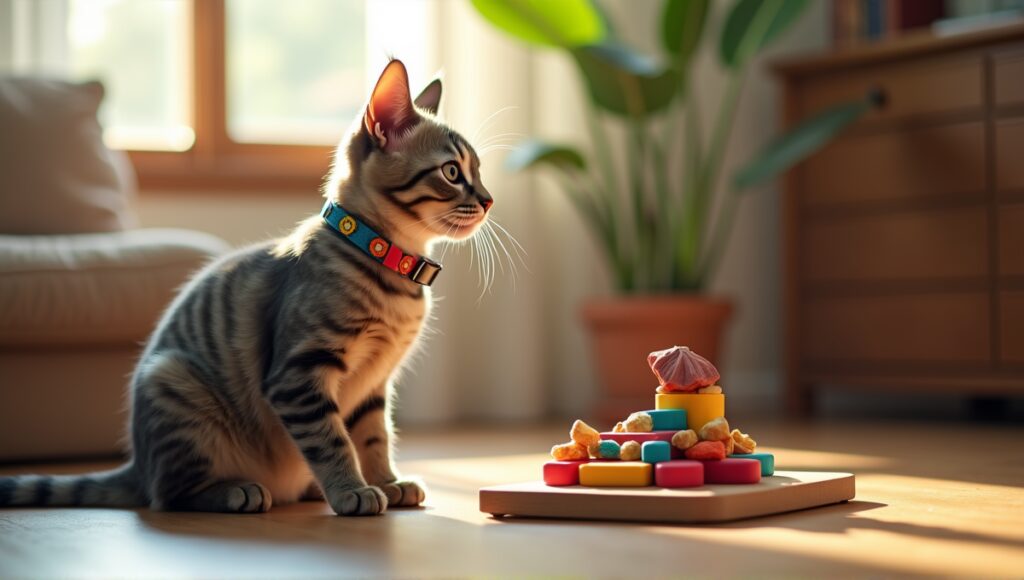
Cat intelligence is one of my favorite topics to research, as I’ve done so for years. You might be curious about how intelligent your cat really is. Let’s figure it out together.
Feline intelligence encompasses:
- problem solving
- memory
- adaptability
Cats have an impressive 300 million neurons in the cerebral cortex, which is almost double the number of neurons found in dogs. This neurological difference suggests cats may have a cognitive advantage.
However, assessing cat intelligence is more difficult. Unlike dogs, cats often aren’t motivated to perform tasks or tricks on command. Their independent nature makes traditional intelligence tests challenging. I’ve experienced this firsthand while volunteering at animal shelters, where cats just refused to cooperate. Yet, I don’t believe this means they lacked intelligence.
A cat’s perceived intelligence is also influenced by their individual personality traits. Some cats are naturally more curious or social, making them seem more intelligent. Other cats may have the same cognitive potential but simply don’t express it in the same way.
Additionally, a cat’s cognitive potential is heavily shaped by their environment. Their early socialization experiences and mental stimulation can either maximize or limit their cognitive potential. You, as the cat owner, play a critical role in nurturing this potential.
Keep in mind that cat intelligence doesn’t always look the same as human or dog intelligence. Instead, your cat’s unique behaviors and problem solving are clear signs of their intelligence. Watching your cat do these things can provide insight into their intelligence level.
Top Intelligent Cat Breeds
Some cat breeds are notably more intelligent than others. Here are a few breeds that consistently rank as some of the most intelligent cats:
Abyssinians:
- Learn quickly
- Very curious and investigative
- Excellent at solving problems
Siamese:
- Very vocal and communicative
- Socially intelligent
- Capable of learning tricks
Bengals:
- Playful and energetic
- Excellent at puzzle toys
- Highly trainable
Scottish Folds:
- Can adapt to new environments
- Understand human emotions well
- Pick up household routines quickly
Sphynxes:
- Very people-focused
- Learn quickly
- Enjoy interactive play
Russian Blues:
- Very observant and analytical
- Great memory of routines
- Can open doors and cupboards
Bengals and Savannahs are also considered intelligent breeds due to their wild genes. The reintroduction of wild genes from these breeds makes them more adept at problem-solving and adapting to new environments.
These are all general cat breed rankings, though. Keep in mind that intelligence can vary widely within a breed. I’ve frequently seen “average” breeds outsmart their more “intelligent” counterparts. Your cat’s own personality and unique life experiences will largely impact how intelligent they are.
Traits of Intelligent Cats
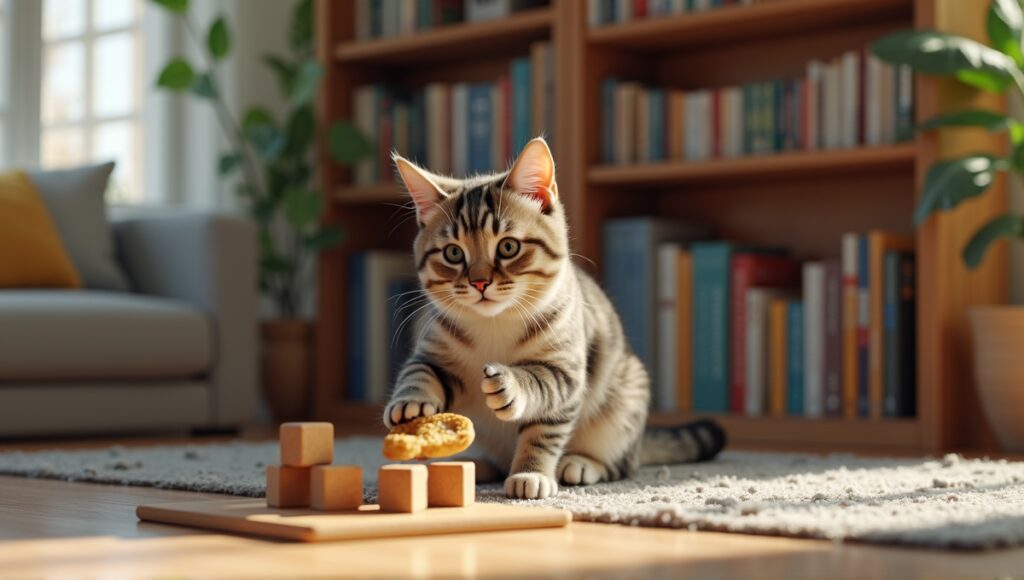
There are a few key traits that intelligent cats exhibit. These are the traits you can look for to determine how smart your cat is.
One of the main signs of cat intelligence is their ability to solve problems. Smart cats are quick to learn how to open doors, access high spaces, or find hidden treats. For example, I had a cat who observed us turning doorknobs and learned how to do it herself in just a few days!
Trainability is another sign of intelligence. Smart cats are more responsive to commands and can learn tricks. They also tend to be more trainable using a clicker and positive reinforcement.
High social intelligence is also a sign of cat intelligence. These cats understand human emotions and communicate with you effectively to get what they want through body language, facial expressions, or vocalizations.
also consider:
High memory capacity is a sign of intelligence. Cats can remember things for approximately 10 years. This can include knowing their name or understanding a specific thing that a particular human does.
The ability to learn something is another sign of cat intelligence. Intelligence cats quickly learn to adapt to new situations. They’re also the cats who get the hang of a new toy or feeding puzzle first.
Your cat’s intelligence may also present itself in unique ways. Watch for any of these specific behaviors or a cat’s chosen solution to a problem, as it could be a sign that your cat is smarter than you think!
Measuring Cat Intelligence
Assessing feline intelligence is tricky, as cats don’t always cooperate with testing as readily as dogs. However, researchers have developed several strategies to test cat intelligence:
Cognitive tests for cats:
- Object permanence tests
- Puzzle box solving
- Social referencing experiments
- Memory recall tasks
Observational studies involve watching cats in their natural environments to observe problem-solving, social dynamics, and learning.
Comparing cats to other animals also provides useful data on cat intelligence. For example, some studies have found that cats perform just as well as dogs in specific cognitive tasks and even outperform them in others.
It’s worth noting that a cat’s intelligence is more about its learning and experiences than its breed. Additionally, a cat’s cognitive abilities can improve at any age with ample mental stimulation and care.
These methods reveal much of what we know about cat cognition. However, these testing methods still don’t capture the full range of cat intelligence, and your own observations of your cat are equally valuable in understanding how intelligent he or she is.
Factors Affecting cat breed intelligence
There are various factors that influence a cat’s cognitive development. Knowing these factors will help you promote your cat’s intelligence.
Genetics are the baseline cognitive potential. Some breeds might be more predisposed to specific types of intelligence. However, there is a lot of variance within breeds.
Early socialization is also important. Kittens that are exposed to a wide variety of experiences during the critical developmental period will often be better problem solvers later in life. I noticed this when working at the pet store as kittens that were well socialized solved problems more easily in new environments.
Environmental enrichment has a huge impact on cognitive development. Cats that live in an enriching environment with plenty of toys, puzzles, and social interaction tend to be more intelligent. The same is true of providing a variety of experiences for your cat to enjoy.
other factors include:
Diet and nutrition are the foundation. Feeding an appropriate diet, particularly during kittenhood, supports brain development. Certain nutrients, such as omega-3 fatty acids, are specifically beneficial for cognitive function.
It’s interesting to note that wild felids have larger brains than domestic cats. Therefore, natural challenges to survive might promote cognitive development.
Your cat’s intelligence isn’t set in stone. Cats (and their cognitive abilities) will continue to develop. The key to maintaining and increasing your cat’s intelligence throughout their life is ongoing mental stimulation.
Training Intelligent Cats
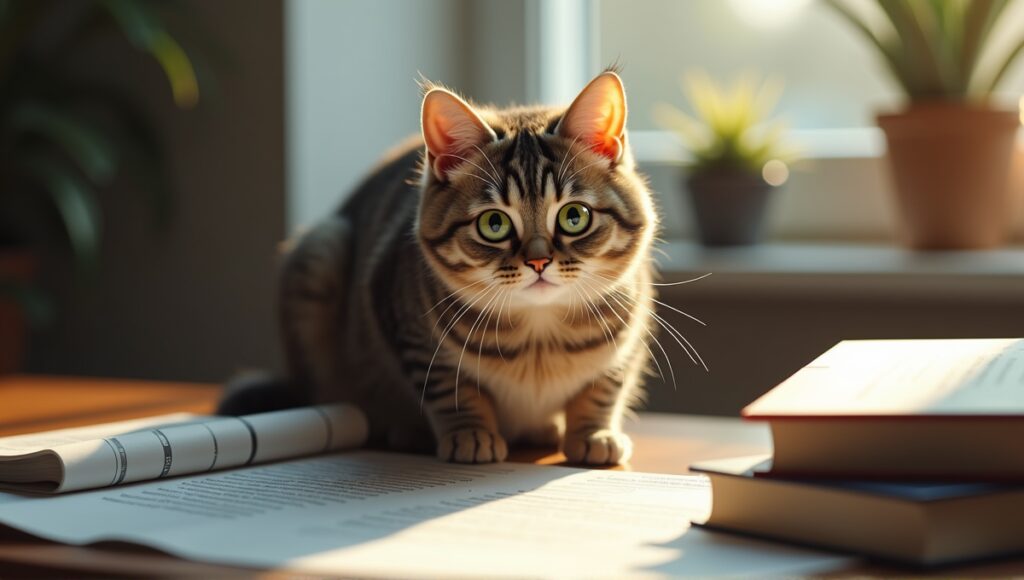
Training a smart cat is a great way to strengthen your bond with your pet and give them mental stimulation.
The best training techniques for cats differ from those used for dogs, and positive reinforcement is essential.
- Use treats, praise, or play as a reward, and always be consistent and patient.
Clicker training is often effective with cats because the unique sound helps them associate the behavior with the reward.
- Start with basic commands and gradually increase difficulty.
Puzzle toys are excellent mental stimulation tools to help your cat use their brain.
- Puzzle toys challenge your cat’s problem-solving skills and keep them mentally engaged.
- To maximize effectiveness, rotate the toys.
Training natural behaviors ensures the training is easier.
- Leverage your cat’s hunting instinct to make training play-based.
- Design safe environments where your cat can naturally climb and explore.
Keep in mind that cats are more challenging to train than dogs and don’t have as strong of a desire for social interaction or approval.
- If progress seems slow, don’t worry. Your cat will still learn, just at their own pace.
Keep training sessions short and frequent.
- Five minutes of training several times a day is usually more effective than longer, less frequent sessions.
- Always let your cat succeed before ending the training session so they feel motivated.
Your smart cat can learn any behavior or trick, and with consistency and patience, you’ll be surprised how much they can learn! If you are considering adding a new member to your family, you might also be interested in learning about exotic cat breeds.
Let’s Close This Out
I’ve worked with cats for years and studied their behavior. Cat intelligence is a multi-faceted, interesting topic. Each cat is an individual with different strengths and quirks. While breed can have some impact, it’s not the only factor. Environmental influences, early socialization, and the specific personality all contribute to a cat’s intelligence.
Training and mental stimulation help develop your cat’s intelligence. Keep in mind every cat can develop and learn, regardless of its breed. The most important thing is to respect what makes your cat special and form a strong connection through play and positive experiences.


